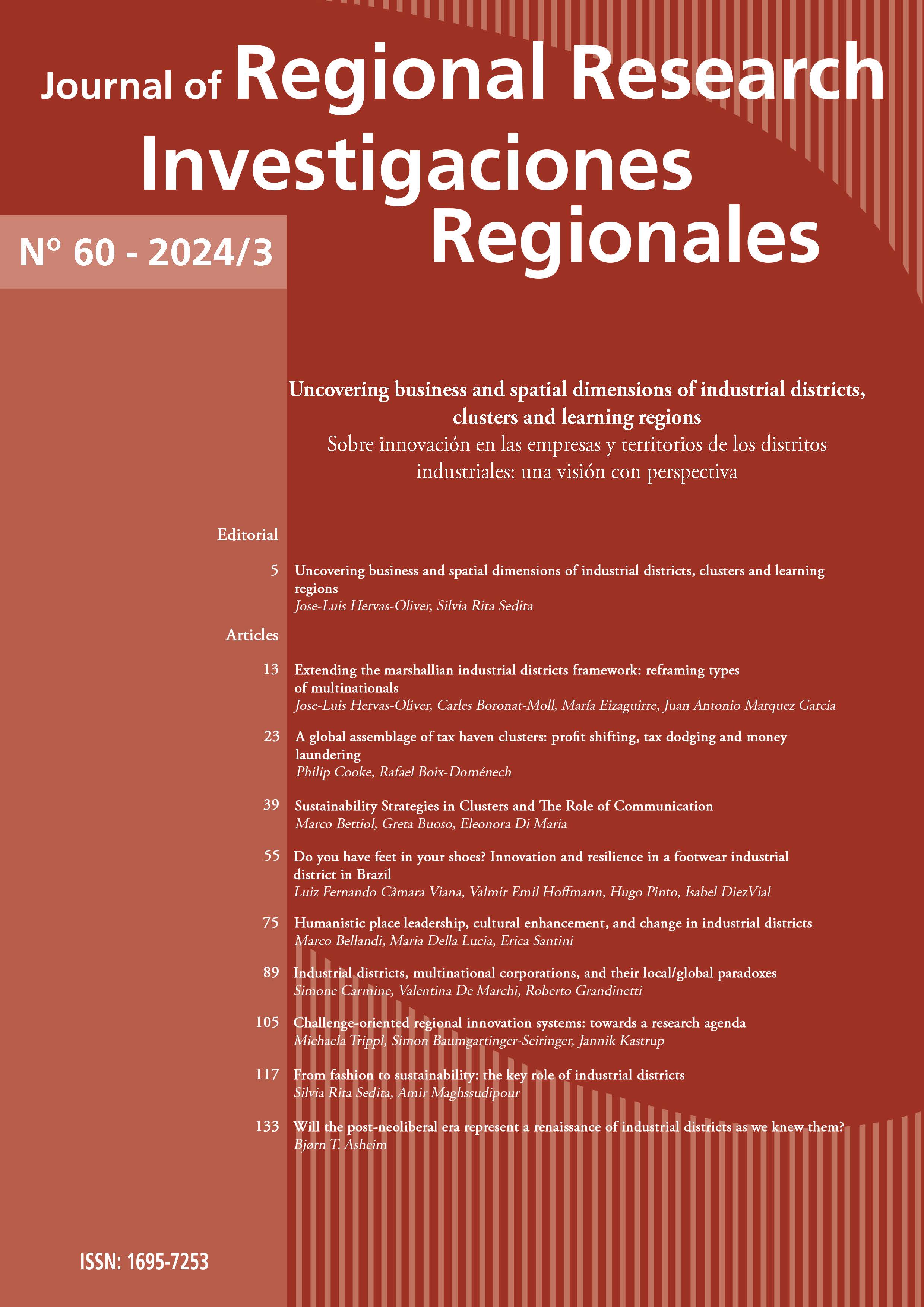A global assemblage of tax haven clusters: profit shifting, tax dodging and money laundering
DOI:
https://doi.org/10.38191/iirr-jorr.24.021Keywords:
Clusters, assemblages, tax havens, agency, desireAbstract
In this paper we explore a selection of tax haven clusters in the US and Europe as diverse but recognisable species of some fifty of the phenomena worldwide that have been seldom studied from an economic geography or spatial planning viewpoint. We treat the objects of study as being almost perfect expressions of the classical, canonical cluster configuration. They are: spatial agglomeration, untraded as well as market dependencies, small and medium-sized enterprise status, associative or agentic relationships, interaction with large firms inside or outside the cluster and knowledge acquisition, advisory, consultancy and knowledge translation services from research and innovation intermediaries - public and/or private. However, we think their characteristics demand further recognition of the interactive and often innovative communication networks by means of which these cluster incumbents interact globally. This is because they are set within a worldwide system that can be conceptualised as an exemplar of the well-known construct known as an ‘assemblage’ (Deleuze and Guattari, 2004a). Unlike more recent treatments from De Landa (2019) and others, we try to concentrate on the motive power of the ‘agentic’ impulses of ‘desire’ that motivate human action (e.g. regarding ‘God, Gold or Glory’ as commonly-rehearsed motivators for colonialism of various kinds). It has been more common to use ‘assemblage theory’ to analyse the interlocking ‘machinic’ elements of complex systems like power networks or laboratory interactions. To unlock the mysteries of system interlocking in our selected tax havens, which comprise Wilmington, Delaware (US), Ireland (EU) and Gibraltar (former EU, now British Overseas Territory) – post-Brexit - occupying a ‘quantum’ space ‘in which both the colonial and post-colonial find expression’ (Perera, 2021). Methodologically, we seek ‘pattern recognition’ to identify the lineaments that explain these clusters and the ‘agentic’ actors that motivate them.
Downloads
Published
Issue
Section
License
Copyright (c) 2024 Philip Cooke, Rafael Boix-Domenech

This work is licensed under a Creative Commons Attribution-NonCommercial 4.0 International License.
Aquellos autores/as que tengan publicaciones con esta revista, aceptan los términos siguientes:
En el momento de aceptar la publicación de sus artículos en Investigaciones Regionales / Journal of Regional Research, los autores acceden a utilizar la licencia Creative Commons CC BY-NC. IIRR/JRR es una revista abierta que permite a los autores retener el máximo control sobre su trabajo. Los autores aceptarán utilizar la licencia Creative Commons Attribution-NonCommercial. Esta licencia permite a cualquier persona copiar y distribuir el artículo con propósitos no comerciales, siempre y cuando se atribuya adecuadamente la atribución del trabajo a la revista y a los autores.
Funding data
-
Ministerio de Ciencia, Innovación y Universidades
Grant numbers PID2021-128878NB-I00


